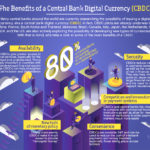Venture investors shape the future by funding the development of certain technologies. Until recently, they weren’t many surprises, with most trends easily seen 3, 5 or even 10 years out. But 2021 was different. The ongoing pandemic and increased social pressure have significantly expanded possible areas for the application of fintech solutions. This, combined with major shifts in the global economy, have set new development vectors for the fintech market, thereby making it more difficult to predict the future. Nonetheless, the hardworking people at Digital Horizon have put together 7 fundamental trends (with 2 possible scenarios each) likely to shape our future.
- Democratization of private assets – regulators are quickly working to find the best overall solutions for possibilities that couldn’t have been imaged some years ago. Either they will begin to restrict market access or will be successful in finding a balance between retail investors’ interest in high-return assets and the need to safeguard people’s financial safety.
- Products for solo-entrepreneurs – the pandemic has accelerated changes in the labor market, especially the rise of freelance workers and platforms. This niche sector and the financial institutions and products that serve with will continue to develop but stay niche. Alternatively, the principles used to serve this niche segment could be carried over to the mainstream market, leading to the significant expansion of financial product availability.
- Fintech for open ecosystems – either independent players will refuse to team up and build open ecosystems (leading to increased gaps for market leaders), or the development of open ecosystems will increase market fragmentation (with users having separate financial institutions/apps for each different life experience (e.g. one for shopping, another for travel and yet another for educational expenses).
- Post-big data era – the is a large volume of big data in the world, yet it’s useful is often difficult to tap into. It is expected that one entity will become a big data monopoly, storing and processing data centrally. Alternatively, the specialization of data processing could intensify, leading to client companies purchasing already-identified patterns of data.
- Tokenization of real-world assets – the digitization of ownership and copyright creates new asset classes that can be sold, bought and divided. This could remain exclusively in the realm of alternative finance, meaning that such assets remain more expensive and high-risk-taking market participants will benefit more from them, or asset tokenization could become deeply integrated with other business processes and allow companies to create new, non-standard financial products.
- Payments in metaverses – metaverses are already here. However, it remains to be seen if they will develop in a decentralized or centralized way. If decentralized, it will mean that users will have greater control of the management of data and content. If centralized, much of this power will be given to metaverse creators (as regulated by big techs and regulating bodies).
- Green fintech – with the effects of climate change becoming increasingly clear, green finance will become important. On one hand, it could become mainstream, with regulators and society demanding it be a central feature of decision-making. On the other hand, it could remain a feature within open ecosystems, giving more of a focus on reducing energy consumption and switching to renewable energy sources.
 BFC Bulletins Monthly News Digest
BFC Bulletins Monthly News Digest




